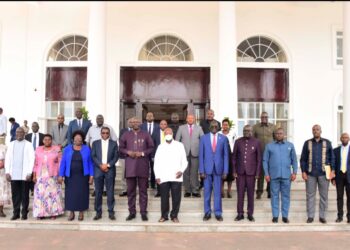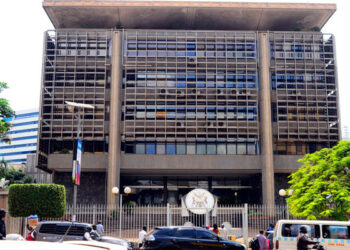Non-governmental organizations in Uganda have been told to submit financial information including budgets and donor lists to the authorities, an official told Reuters on Thursday, in a move rights groups said was another attempt to muzzle criticism.
Steven Okello, executive director of the state-run National Bureau for NGOs, told Reuters the organisation was undertaking a “verification and validation” exercise for all non-profits operating in the country and that this included filing of financial records.
“We want more information about these organisations, their area of operation… We want also to establish do you have an approved budget, how much is that budget, and who is funding it,” Okello said.
Livingstone Sewanyana, head of the Foundation for Human Rights Initiative (FHRI), told Reuters the renewed government scrutiny of NGOs was a concern ahead of the election.
“It could have an intimidating effect and also have an overall negative impact on civic oversight of the poll,” he said.
This month a letter circulating on social media showed the head of the Financial Intelligence Authority, a government agency that tracks and combats money laundering, writing to a commercial bank requesting financial records of 13 pro-democracy NGOs including FHRI.
The agency’s head, Sydney Asubo, did not reply to a Reuters call seeking comment, but Sewanyana told Reuters that FIA has confirmed to him they were seeking the information.
The government was “introducing unnecessary, unrealistic bureaucratic burdens on NGOs,” said Sara Birete of the Centre for Constitutional Governance.
“Considering the period we are going into of course, the move becomes suspicious especially considering what happened in the past.”
In 2017, security personnel raided the offices of at least two pro-democracy NGOs including South Africa-based ActionAid, confiscating computers and other equipment saying they were undertaking irregular activities likely to destablise the country.
Earlier this month, the communications regulator said influential figures on social media and others with commercialised online followings were to be monitored by the state to clamp down on immoral or prejudiced content. Critics said that move was part of a growing campaign to suppress the opposition.
Do you have a story in your community or an opinion to share with us: Email us at editorial@watchdoguganda.com











